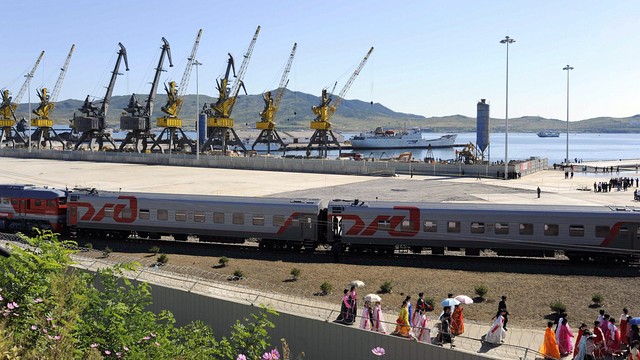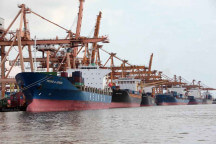SEOUL: A rare movement of trade between the two countries has been witnessed following a deadly naval incident in 2010. After serious efforts trade movement is back on track and South Korea is scheduled to receive a shipment of coal from a North Korean port that is first transitions after navel incident.
About 40,000 tons of Russian coal departed from the North Korean port of Rajin, close to the Russian border. South Korean steelmaker Posco will receive the shipment at the port of Pohang, according to the company.
An official at South Korea’s Unification Ministry, which coordinates inter-Korean affairs, said payment will be made to Moscow’s national rail company, Russian Railways, with some of the money going to North Korea for use of its port and railway.
Based on current coal prices, the shipment is worth around $4 million. North Korea is receiving an undisclosed sum, which a Unification Ministry official called “very small.” A spokesman for the Russian Railways said North Korea receives 30% of the usage fee for about 50 kilometers (31 miles) of railroad from the Russian border to Rajin but couldn’t provide details about the payment. A spokesman for Posco declined to comment on the cargo value or the payment structure.
The deal, while described by all parties involved as a trial, marks the first major business transaction in years involving North Korea receiving South Korean money outside of a joint industrial zone near their border. Other commercial ties were severed when Seoul barred investment and participation in North Korean business ventures following the sinking of a South Korean naval warship in 2010.
That incident killed 46 sailors and was attributed by Seoul and an international investigation to a North Korean torpedo attack. Pyongyang has denied any involvement.
A Unification Ministry official said that since the structure of the deal involves payment via a third country it isn’t subject to Seoul’s sanctions against Pyongyang. The official, who requested customary anonymity, said the exception was also made to promote South Korean President Park Geun-hye’s “Eurasian Initiative,” which aims to link Europe and East Asia with energy and transport networks.
Since 2010, the sole major money transfers from South Korea to North Korea have been payments at the Kaesong Industrial Complex at a North Korean border town, where South Korean companies manufacture basic products such as clothing and household goods using North Korean labor. Seoul pays Pyongyang about $90 million a year as wages for about 50,000 workers at the plant.
The deal also comes despite a nose dive in inter-Korean relations following two incidents of North Korean troops firing over the border in recent weeks.
Mr. Putin has for many years sought to develop the Russian Far East. The ultimate goal has been to extend the trans-Siberian Railway and gas pipelines to the Korean Peninsula―across North Korea to South Korea,becoming a key carrier for cargo and energy between East Asia and Europe.
For North Korea, the project is an opportunity to earn hard currency and have others help upgrade its infrastructure. Rajin port is ice-free year-round, making it attractive for Russia and potentially China for cargo use.
Posco’s coal imports from Russia normally leave from the port of Vladivostok, north of Rajin. The Posco spokesman declined to comment on the relative merits of using Rajin and Vladivostok.
Employees of the three South Korean companies in the consortium, Posco, shipper Hyundai Merchant Marine and state-owned rail operator Korail, traveled to Rajin to study the project and prepare the shipment, according to the ministry. A Hyundai spokeswoman declined to comment. A Korail spokesman couldn’t be reached for comment.
Chinese President Xi Jinping and Ms. Park have met multiple times since they came to power early last year. Earlier in November they announced the outline of a bilateral free-trade deal.





